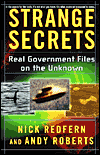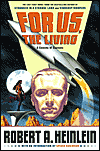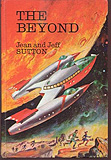Dune, by Frank Herbert
Book Review by Aaron M. Renn
Have you read this book?
My computer crashed, keeping me away from my precious hacking and in a strange way sucking out my life force. I have been singularly unmotivated to do anything, including read new books. All I could bring myself to do was to re-read a few old SF novels. Now that I'm back in business with a new computer, my reviews resume with a series of these repeat reads.
The first was Dune. I happened to stumble across a showing of the movie Dune on the Sci-Fi channel. I thought it was better than I had remembered it. And it made me want to go back and re-read the book.
Dune is an interesting work, telling the story of young Paul Atreides as he grows into his destiny and battles the evil forces that threaten his family and the life he's known. Dune refers to the planet Arrakis, a desert world that is the sole source of the melange spice, which extends life and also has psycho-active properties. This is the most valuable substance in the galaxy, and it is nominally quite a coup for the Atreides family to be put in charge of its production. Nevertheless, they suspect a trap laid by their arch-enemies, the Harkonnens.
This book has a few of the cliched sf elements that I dislike, such as the far future society organized on feudal lines, the Christ-like child of prophecy come to save the world, the more-evil-than-evil villains, but nevertheless I thought it was an interesting read. Herbert clearly put a lot of work into designing his universe, which has the feeling of depth too it so often missing in lesser works. Additionally, he cleverly hints at events in the past that would be interesting to know about, but doesn't tell us about them, thus leaving us wanting to know more about the world. (I'm guessing Herbert delivered on that desire, as he wrote many sequels, none of which I've read). He also smartly went with the "epic feel" of re-telling a legend rather than a straight ahead narration. It was pretty obvious what was going to happen at the end, and by adopting this approach Herbert avoids making his work look transparent.
Still, this clearly fell a step or two below the masterpiece category for me, probably because of the elements I outlined above. Perhaps that's a bit unfair. This book was written long ago and for all I know Herbert was the first to originate all of the cliches I complain about.
Nevertheless, reading in the year 2000, I can't help but being affected by them. But as one of the classics of the field, and a solid, above average work to boot, Dune is clearly a must read for any SF fan.
Read more of Aaron's reviews at his web site.
The first was Dune. I happened to stumble across a showing of the movie Dune on the Sci-Fi channel. I thought it was better than I had remembered it. And it made me want to go back and re-read the book.
Dune is an interesting work, telling the story of young Paul Atreides as he grows into his destiny and battles the evil forces that threaten his family and the life he's known. Dune refers to the planet Arrakis, a desert world that is the sole source of the melange spice, which extends life and also has psycho-active properties. This is the most valuable substance in the galaxy, and it is nominally quite a coup for the Atreides family to be put in charge of its production. Nevertheless, they suspect a trap laid by their arch-enemies, the Harkonnens.
This book has a few of the cliched sf elements that I dislike, such as the far future society organized on feudal lines, the Christ-like child of prophecy come to save the world, the more-evil-than-evil villains, but nevertheless I thought it was an interesting read. Herbert clearly put a lot of work into designing his universe, which has the feeling of depth too it so often missing in lesser works. Additionally, he cleverly hints at events in the past that would be interesting to know about, but doesn't tell us about them, thus leaving us wanting to know more about the world. (I'm guessing Herbert delivered on that desire, as he wrote many sequels, none of which I've read). He also smartly went with the "epic feel" of re-telling a legend rather than a straight ahead narration. It was pretty obvious what was going to happen at the end, and by adopting this approach Herbert avoids making his work look transparent.
Still, this clearly fell a step or two below the masterpiece category for me, probably because of the elements I outlined above. Perhaps that's a bit unfair. This book was written long ago and for all I know Herbert was the first to originate all of the cliches I complain about.
Nevertheless, reading in the year 2000, I can't help but being affected by them. But as one of the classics of the field, and a solid, above average work to boot, Dune is clearly a must read for any SF fan.
Read more of Aaron's reviews at his web site.
| Dune, by Frank Herbert on Amazon |
Dune, by Frank Herbert on Amazon
| More Books You Might Like |
Comment on Dune, by Frank Herbert




